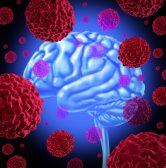Definition
noun, plural:
The sense of balance in humans and animals that involves visual system, vestibular system, and proprioception working together to achieve balance
Supplement
Equilibrioception is the sense of balance. It is a physiological sense in humans and animals to prevent them from falling over as they move or stand. It entails visual system, vestibular system, and proprioception working together to achieve balance.
The visual system works through the use of eyes, which are the organs of vision. The visual system processes the visual detail perceived by the eyes. The eyes detect light and objects, which they then convert the information into impulses to be relayed through the neurons and then to the brain for processing. The visual system coordinates with the vestibular system and the skeletal system to enable the brain to process signals and determine the position of the body in relation to the surrounding.
The vestibular system is comprised of the semicircular canal system and the otoliths to indicate rotational movements and accelerations, respectively. Proprioception is a sensory perception of motion and relative position of the body through the receptors in tissues such as muscles, tendons, inner ear, and joints.
See also:
- equilibrium
- proprioception
- otolith
- eye







